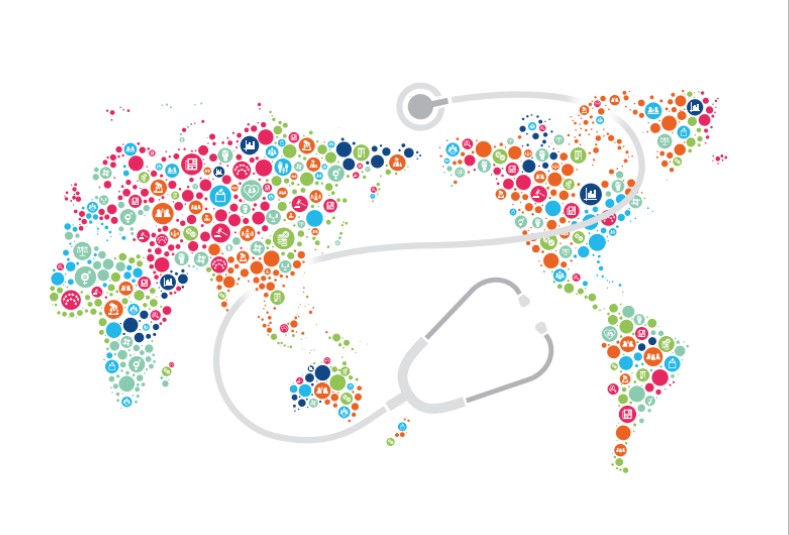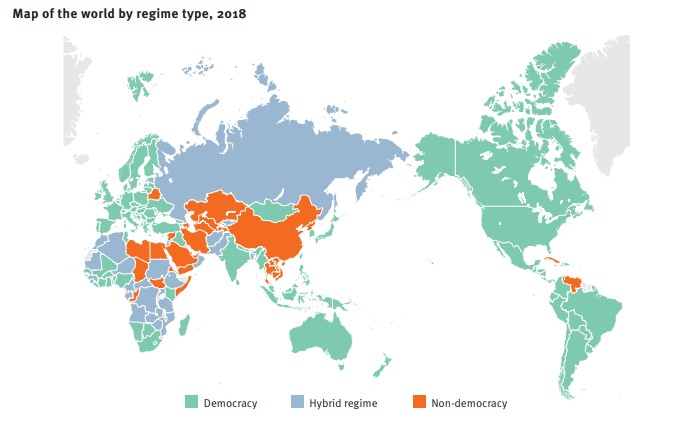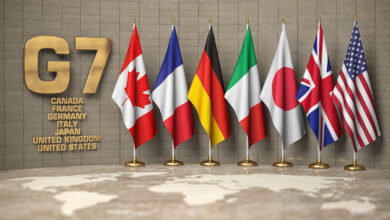
Armenia was the only country in Europe to transition from being a hybrid regime in 2017 to a democracy in 2018, according to a new report published by the International Institute for Democracy and Electoral Assistance (International IDEA).
The study notes that “Armenia recorded the highest number of statistically significant advances in Europe for 2018: on Checks on Government, Impartial Administration and Participatory Engagement, and on eight related democratic subattributes.”
The report titled Global State of Democracy 2019: Addressing the Ills, Reviving the Promise provides a health check of democracy and an overview of the current global and regional democracy landscape. It analyses the encouraging democratic trends as well as the key current challenges to democracy.
The analysis in The Global State of Democracy 2019 reflects the data in the GSoD Indices for the period 1975– 2018, which shows that democracy continues to expand its reach around the world, with the number of democracies continuing to grow.

The world is more democratic than it has ever been. According to the report, more than half of the countries in the world (62 per cent, or 97 countries) are no democratic (compared to only 26 per cent in 1975), and more than half (57 per cent) of the world’s population and more than four billion people, now live in some form of democracy, compared to 36 per cent in 1975. The share of non-democracies has more than halved since 1975 (68 per cent of countries in 1975 versus only 20 per cent in 2018).
The majority (72 per cent) of today’s democracies were established after 1975 as part of the so-called third wave of democratization. Of these, more than three-quarters transitioned before 2000 (early third wave), while less than one-quarter transitioned after 2000. The remaining 28 per cent of the world’s current democracies, all of which were established prior to 1975, have experienced uninterrupted democracy between 1975 and today, except Sri Lanka.
Democracies can now be found across all regions of the world. In North America and Europe, 100 and 93 per cent of countries are democracies, closely followed by Latin America and the Caribbean (86 per cent of countries).
In the past 10 years (i.e. since 2008), 11 countries transitioned to democracy for the first time in their history. Four of these transitions have occurred in the past four years: Burkina Faso and Myanmar in 2015, Armenia and Malaysia in 2018. This is more than the previous decade and equals the number of new transitions in the first decade of the third wave (1975–1985).
The report notes that in 2018, two of the world’s most enduring hybrid regimes transitioned to democracy: Armenia and Malaysia. Malaysia became a democracy after more than four decades of hybridity following the 2018 general elections in which the monopoly of the National Front Coalition (Barisan Nasional) came to an end on the back of a united opposition and a strong civil society.
“Armenia, a hybrid regime since its independence in 1991, was beset by a wave of popular protests in 2018 that led to the resignation of its prime minister and long-standing president, and a subsequent electoral victory for the opposition,” the study says.








